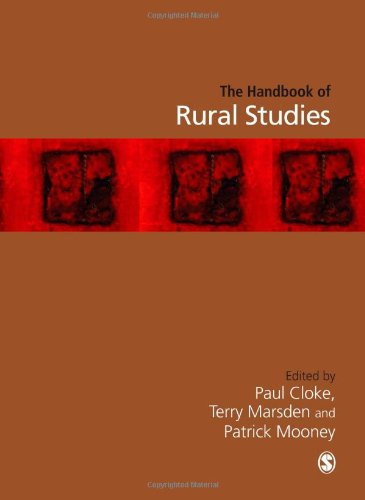

Most ebook files are in PDF format, so you can easily read them using various software such as Foxit Reader or directly on the Google Chrome browser.
Some ebook files are released by publishers in other formats such as .awz, .mobi, .epub, .fb2, etc. You may need to install specific software to read these formats on mobile/PC, such as Calibre.
Please read the tutorial at this link: https://ebookbell.com/faq
We offer FREE conversion to the popular formats you request; however, this may take some time. Therefore, right after payment, please email us, and we will try to provide the service as quickly as possible.
For some exceptional file formats or broken links (if any), please refrain from opening any disputes. Instead, email us first, and we will try to assist within a maximum of 6 hours.
EbookBell Team

4.0
46 reviews"This Handbook powerfully demonstrates that rural spaces, rural societies and rural natures are at the very forefront of critical social science endeavour. Read this book, become a rural social scientist."
―Henry Buller, University of Exeter
"An outstandingly comprehensive review of theory, research and the study of rural questions…an essential reference for students, scholars, politicians, developers and rural activists."
―Imre Kovach, Institute for Political Sciences, Budapest
"This collection is an essential addition to any rural scholar's library and will be a critical resource for both established rural scholars and rising graduate students interested in rural research topics."
―Peter B. Nelson, Middlebury College
"The Handbook of Rural Studies is a tour de force on changing rural people and places in a rapidly urbanizing global economy -- the most comprehensive interdisciplinary treatment of 'rural' available anywhere. This is absolutely must reading for social scientists concerned about finding a prominent place for 'rural' in scholarly discourse, institutional analysis, and public policy debates on the political economy of space."
―Daniel T. Lichter, Cornell University
The Handbook of Rural Studies represents the vitality and theoretical innovation at work in rural studies. It shows how political economy and the "cultural turn" have led to very significant new thinking in the cultural representations of: rurality; nature; sustainability; new economies; power and rurality; new consumerism; and exclusion and rurality.
It is organized in three sections: approaches to rural studies; rural research: key theoretical co-ordinates and new rural relations.
In a rich and textured discussion, the Handbook of Rural Studies explains the key moments in which the theorization of culture, nature, politics, agency, and space in rural contexts have transmitted ideas back into wider social science.